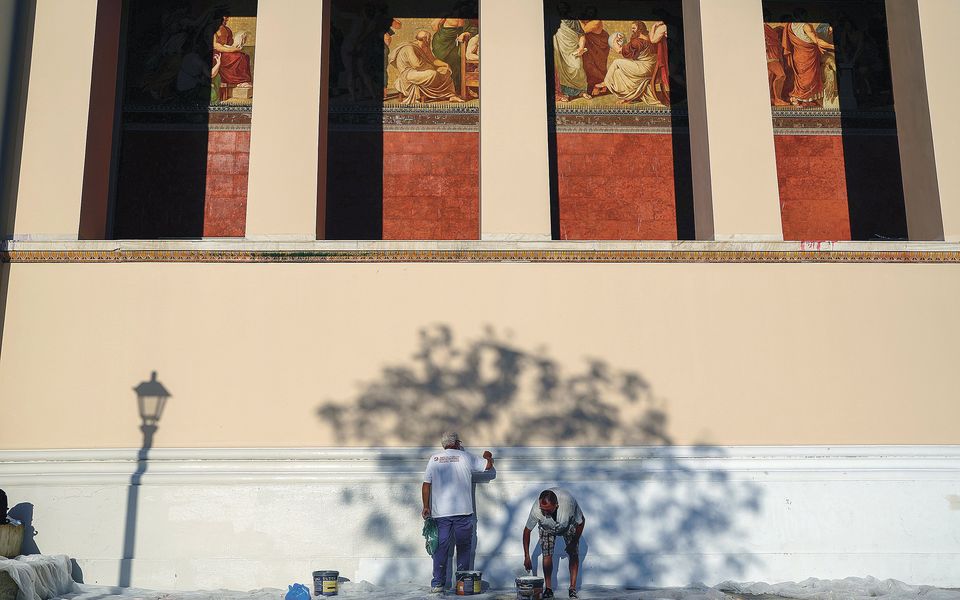
Workers paint the facade of the Athens’ University Building on October 15, 2024. [Petros Giannakouris/AP]
The government has given university administrations until August 31 to comply with a new campus security law, warning there will be no extensions and strict monitoring of enforcement.
Universities that have not yet submitted security plans must do so within three weeks, while those with existing plans must update them by year’s end to record and prioritize needs in infrastructure, electronic systems and staffing.
The Education Ministry has formed a task force, led by Minister Sofia Zacharaki and Deputy Minister Nikos Papaioannou, to oversee implementation and prevent the law from “remaining on paper,” as has happened with past security measures.
The legislation introduces new disciplinary councils at the university level, replacing the previous school-by-school model, which the ministry said allowed delays and obstruction in disciplinary cases. Students facing charges for violent acts on campus may face immediate suspension of student status if prosecutors impose restrictive conditions. Rectors must issue suspension orders within 10 days of such rulings, resulting in loss of access rights, benefits and participation in academic activities. Vandalism or damage to equipment will require full compensation to the institution.
The law also imposes sanctions on university administrators who fail to carry out their security oversight duties, ranging from written reprimands to fines equal to six months’ salary, suspension without pay for up to a year, or permanent dismissal.
Authorities plan to assign prosecutors in Athens, Piraeus and Thessaloniki to handle crimes that disrupt university operations or involve violence against members of the academic community. An electronic platform will log all incidents and university responses, with annual progress reports required from each institution.
The government says the start of the new academic year will be a critical test, anticipating attempts by “dynamic minorities” to obstruct the measures. Officials argue that political costs would stem from allowing unlawful behavior and vandalism to persist, not from confronting them decisively.
Additionally, after the upcoming fall exams, the ministry will proceed with the permanent removal of 300,000 “eternal” students – those far exceeding the normal study period – except for 22,271 who have recently taken steps to complete their degrees.
The ministry has signaled it will enforce both the security plans and the penalties without concessions.

